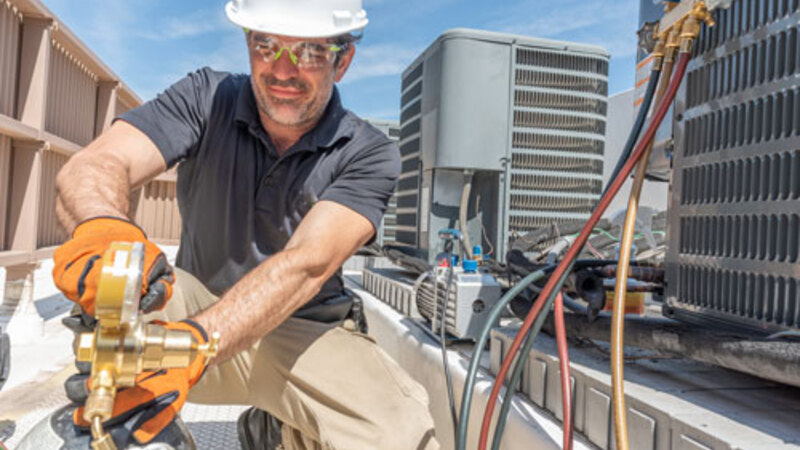Heating, Ventilation, and Air Conditioning (HVAC) systems are the lifeblood of modern buildings, providing essential climate control that ensures comfort and safety. Proper installation of these systems is crucial, not only for optimal performance but also for energy efficiency, longevity, and indoor air quality. Insights from experienced contractors highlight the critical aspects of HVAC installation and why it should never be underestimated.
The Crucial Role of HVAC Contractors
The expertise and professionalism of HVAC contractors are essential for the smooth functioning of residential, commercial, and industrial buildings. Their dedication to quality workmanship, safety, and customer satisfaction make them indispensable partners in the quest for efficient and reliable climate control solutions. Choosing a reputable HVAC contractor is the first step toward ensuring the long-term performance and comfort of your heating and cooling systems.
Ensuring Optimal Performance
A well-installed HVAC system operates at peak efficiency, maintaining desired temperature and humidity levels without overworking. Contractors emphasize that precision in installation is key. This includes accurate sizing of the system, correct placement of units, and meticulous calibration of controls. If any component is incorrectly installed, it can lead to uneven heating or cooling, increased wear and tear, and frequent breakdowns. For instance, an oversized system can cycle on and off too frequently, while an undersized one may run continuously without achieving the desired temperature, both scenarios leading to inefficiencies and discomfort.
Energy Efficiency
Energy efficiency is a major concern for both residential and commercial buildings. According to the U.S. Department of Energy, heating and cooling account for about 48% of the energy use in a typical U.S. home. Proper installation ensures that HVAC systems use energy efficiently, reducing overall consumption and lowering utility bills. Contractors point out that ductwork is a critical area where energy losses often occur. Poorly sealed or insulated ducts can leak conditioned air, forcing the system to work harder to maintain set temperatures. Proper installation and sealing of ducts can significantly improve system efficiency.
Longevity of the System
The lifespan of an HVAC system can be significantly shortened if not installed correctly. Contractors with years of experience note that systems installed with care and precision can last 15 to 20 years or more, whereas poorly installed systems might face major issues within the first few years. Key factors that contribute to the longevity of HVAC systems include proper load calculations, correct refrigerant charge, and ensuring proper airflow. Regular maintenance, which is facilitated by a good installation, also plays a vital role in extending the system’s life.
Indoor Air Quality
Indoor air quality (IAQ) is an often-overlooked aspect of HVAC systems, but it is critical for health and comfort. Proper installation directly impacts IAQ by ensuring adequate ventilation and effective filtration. Contractors emphasize that improper installation can lead to poor IAQ due to issues such as inadequate ventilation, incorrect humidity levels, and the accumulation of dust and contaminants within the system. For example, if the air handler is not properly sealed, it can draw in dust and other pollutants from areas like attics or crawlspaces, which are then circulated throughout the home or building.
Safety Concerns
Safety is another critical reason why proper HVAC installation cannot be overstated. Incorrect installation can pose serious risks, including electrical hazards, carbon monoxide leaks, and fire hazards. Contractors stress the importance of adhering to all local codes and manufacturer specifications to ensure the system operates safely. This includes correct wiring, secure connections, and proper venting of combustion gases in heating systems.
Cost Implications
The financial implications of improper HVAC installation are significant. While there may be a temptation to cut costs by skimping on professional installation, this often results in higher expenses over time due to increased energy bills, frequent repairs, and premature system replacement. Contractors advise that investing in professional installation from the outset is a cost-effective approach. The initial expense is often offset by the savings from lower utility bills, fewer repairs, and a longer-lasting system.
The Role of Technology
Advancements in HVAC technology have made systems more efficient and user-friendly, but they also require a higher level of expertise for proper installation. Modern systems often include smart thermostats, variable speed motors, and advanced diagnostic features that enhance performance and efficiency. Contractors highlight the importance of staying updated with the latest technologies and ensuring that installation technicians are well-trained to handle these sophisticated systems. This ensures that homeowners and businesses can fully benefit from the technological advancements in HVAC systems.
The Importance of Professional Installation
Given the complexity and importance of proper HVAC installation, professional expertise is indispensable. Certified HVAC contractors bring a wealth of knowledge and experience to the table, ensuring that every aspect of the installation process is handled correctly. They follow industry best practices, adhere to safety standards, and provide valuable advice on system selection and HVAC maintenance. Furthermore, professional installation often includes warranties and guarantees, offering additional peace of mind to homeowners and business owners.
Conclusion
Proper HVAC installation is a cornerstone of building comfort, energy efficiency, system longevity, indoor air quality, and safety. Insights from experienced contractors underscore the critical nature of meticulous installation practices. Cutting corners or relying on unqualified personnel can lead to significant issues down the line, including higher energy bills, frequent repairs, poor air quality, and safety hazards. Investing in professional installation ensures that HVAC systems operate optimally, providing reliable and efficient climate control for years to come.
In a world increasingly focused on energy efficiency and environmental sustainability, the importance of proper HVAC installation cannot be overstated. It is a crucial investment in the long-term comfort, health, and financial well-being of building occupants. By choosing experienced, certified contractors for HVAC installation, homeowners and businesses can reap the full benefits of their heating and cooling systems while contributing to a more sustainable future.
